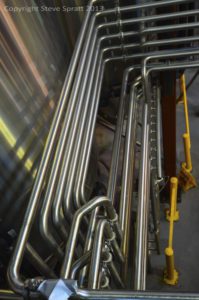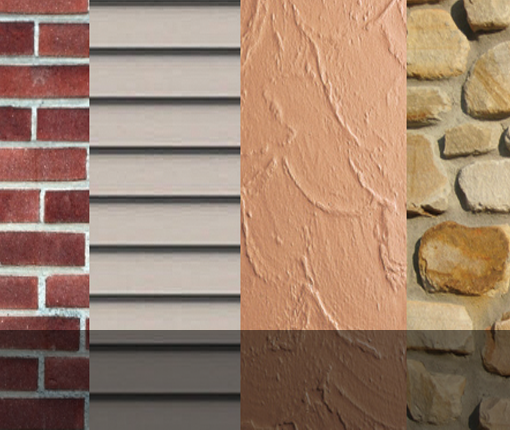Halting Stainless Steel Corrosion
Yes stainless steel can rust?
It may come as a surprise, but stainless steel is not really stainless. In fact, stainless steel can to some degree both rust and corrode. To help you understand better, this post is all about the care required for halting stainless steel corrosion.
What is stainless steel
Stainless steel is a very precise alloy (blend) of iron, nickel, chromium and carbon. What makes this alloy of steel so corrosion resistant is a chromium content of at least 10.5% with a small amount of molybdenum. The corrosion and pitting resistance increases with higher amounts of chromium and molybdenum. Unfortunately, increasing those amounts too much can also affect the strength and brittleness of the metal. The result is numerous special grades of stainless steel all with varying chromium and molybdenum ratios for the diverse environments that must be endured. Choosing the right grade of stainless steel for the job is important.
Grades of stainless steel
Over the years more than 250 grades of stainless steel have been developed. Of those, there are only five basic types. Ferritic, Austenitic, Martensitic, Duplex and Precipitation. There is a sixth type called Superalloys. Superalloys are much stronger and more durable than the other steels. They are also rare and come with extremely high prices. Made for submarines and other exotic uses, I’m sure our military loves Superalloys. Homeowners could care less about most of these.
Here are the grades that homeowners need to know about:
304 Most common grade, magnetic, appliances, BBQs
316 Marine grade, food and surgical stainless steel, jewelry grade (except Rolex), marine exposed appliances and BBQ’s
409 Low cost, stainless auto exhausts
420 Low cost, mass market cutlery grade
430 Auto trim, decorative material
440 High grade, cutlery steel, razor blades
904L Rolex Stainless Steel Daytona watches
Passivation

When a stainless steel part is machined and fabricated various contaminants and abrasive particles can permeate the surface of the metal. Debris, dirt residue such as free iron, grease and machining oils all can become embedded in the surface. These can be microscopic and often go unseen to the human eye. These contaminants weaken the metals resistance to corrosion and make it more susceptible to degradation. It is this contamination that allows stainless steel to corrode.
The passivation process (sometimes called pickling) can return the stainless steel surface back to its original specifications. It does this by aggressively removing the contaminants from the surface, neutralizing the electrical charge and then submerging the part into a protective bath. The process essentially improves, purifies and protects the surface of the part. The restored surface allows the metal to perform as designed to protect itself.
It is important to note that passivation does not change the original outward appearance of the base metal. I have developed a low cost formula if you are interested in optimally protecting your stainless steel. Register with this site and send an email request. We will forward it to you.
Summary
The passivation of stainless steel material is a process performed to make a surface passive or less reactive. A surface film is created that causes it to lose its chemical reactivity. Stainless steel is already known as being corrosion-resistant, however the passivation process strengthens its’ natural coating by improving the exterior surface of the material. Stainless steel passivation purges the stainless steel of the oxygen absorbed by the metal surface, creating a monomolecular oxide film. Passivation results in a highly desired, low corrosion surface on the metal.
Advantages of Passivation
-
- Improved Corrosion Resistance
- Uniform, Smooth Appearance & Finish
- Deburring (Polished Surface)
- Cleanliness
- Improved & Extended Life of Product
Help me to help you
Congratulations on taking time to use this free website. I hope you find the information here fun and useful? Please send me your comments and feedback. Writing and maintaining this site is a lot of hard work. By sharing these pages with your friends, you help me to continue the effort. You can easily share these pages to all your favorite social media sites via the shortcut buttons on the sidebar. You can also simply email the page link to your friends. Please share often.
The very best way to help me occurs when you use the embedded links to buy things. Using a link is easy and free, yet it provides a great source of support for this site. The vendors I’ve chosen to link to have proven to be the very best resources available so that is why I recommend them personally.
This is the place to visit if you want information on: How to improve air quality; ways to improve the value of your home; what are the best cleaning services; do you really need handyman services; how to plan and execute home renovation and home improvement projects; ways to hire a handyman; what to do during spring cleaning; ways to go about tidying up a messy house; and generally how to be a better homeowner.
If you have questions or just want to say hi, please send me a note. If you are looking for help performing the work described and you are in the San Francisco area, go toHPS Palo Alto Inc.and request a free evaluation.
Thanks again!








